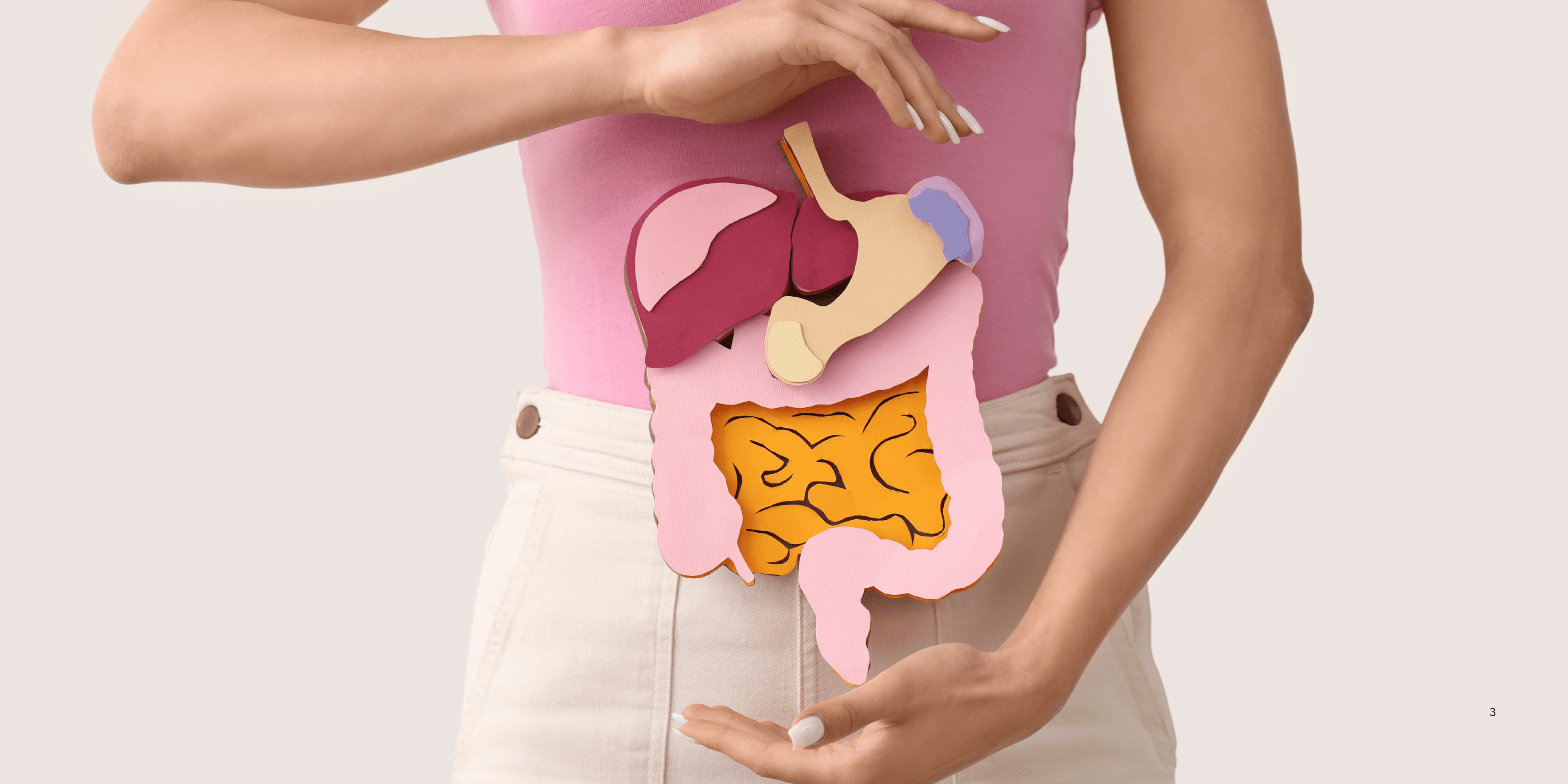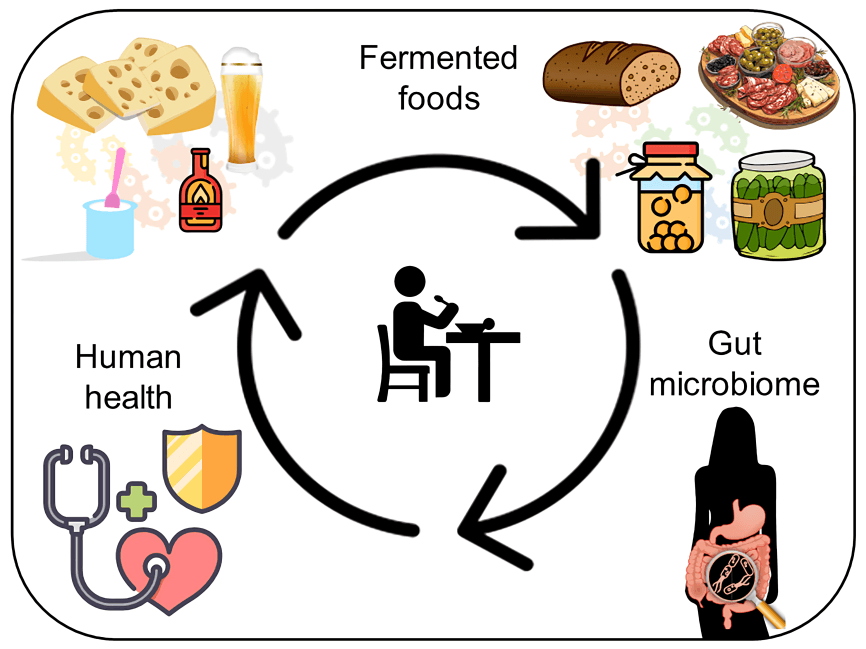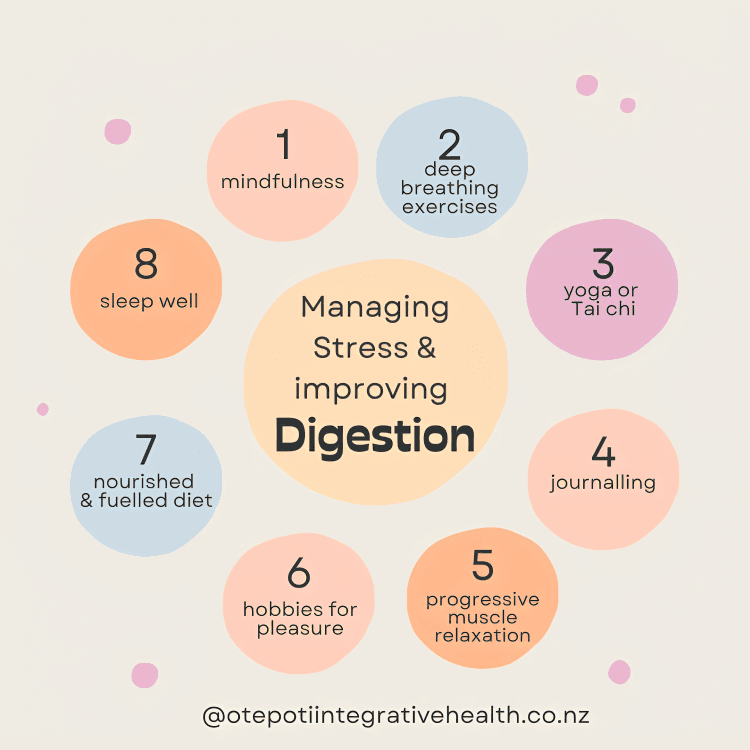
“
When it comes to maintaining overall health, preventing common digestive issues is essential. The digestive system plays a crucial role in absorbing nutrients and eliminating waste. Unfortunately, many people experience digestive discomfort, which can interfere with daily life. By paying attention to what you eat, how you manage stress, and your activity levels, you can keep your digestive system functioning optimally. 1
1
”
Drinking plenty of water throughout the day helps prevent constipation by softening stool and supporting regular bowel movements. Aim for at least 8 cups daily to keep your digestive system running smoothly.1
Eating fiber-rich foods like whole grains, fruits, and vegetables promotes healthy digestion by adding bulk to stool, improving bowel regularity, and preventing common digestive issues like constipation. 2
Reducing your intake of processed foods and sugary drinks can minimize bloating and discomfort. Focus on whole, nutrient-dense foods to support your gut health and enhance digestion over time. 3
Eating smaller, more frequent meals rather than large meals helps avoid overloading the digestive system. This promotes efficient digestion and reduces discomfort, gas, or acid reflux after eating.4

Probiotics, found in yogurt and fermented foods, introduce beneficial bacteria to the gut, supporting healthy digestion. Regularly consuming probiotics can help maintain a balanced gut microbiome.
Chewing food thoroughly before swallowing aids digestion by breaking down food into smaller particles, allowing the stomach and intestines to process nutrients more efficiently and reducing indigestion. 5
Avoiding late-night meals or snacks helps prevent acid reflux and indigestion. Allowing your stomach to rest overnight improves digestion and supports a healthier gut by reducing stress on your digestive system. 6
Limiting high-fat foods, especially fried foods, helps prevent indigestion and bloating. Fatty foods take longer to digest, putting more strain on the stomach and increasing the risk of discomfort or acid reflux. 7
Incorporating ginger into your diet can reduce nausea, bloating, and indigestion. Ginger promotes the production of digestive enzymes, helping break down food more effectively. 8
Reducing your intake of caffeine can alleviate stomach irritation and acid reflux. Excessive caffeine stimulates stomach acid production, potentially leading to heartburn and discomfort in sensitive individuals. 9
Getting regular physical activity improves overall digestion by stimulating the muscles in your intestines, aiding the movement of food and waste through the digestive tract. Exercise also reduces stress. 10

Managing stress through relaxation techniques like deep breathing, yoga, or meditation has a positive impact on digestion. Chronic stress can worsen digestive disorders, such as IBS, bloating, or heartburn.
Limiting alcohol consumption helps protect the digestive system from irritation and damage. Alcohol can increase stomach acid production and disrupt the balance of gut bacteria, causing acid reflux or ulcers.11
Consuming healthy fats, such as those found in avocados and olive oil, supports digestion by helping your body absorb fat-soluble vitamins. These fats also promote a healthy gut lining. 12
Avoiding smoking benefits your digestive system by preventing damage to the esophagus, stomach, and intestines. Smoking disrupts gut motility and increases the risk of conditions like heartburn. 13
Eating slowly and mindfully helps prevent overeating and indigestion. Taking time to savor each bite allows your body to properly signal when it’s full, preventing bloating and discomfort from overeating. 14
Including fermented foods like sauerkraut, kimchi, and kefir in your diet introduces beneficial bacteria to your gut. These probiotics improve digestion and may help alleviate symptoms of irritable bowel syndrome (IBS).15

Drinking warm water with lemon in the morning can stimulate digestion and support detoxification. The acidity in lemon helps balance stomach pH, promoting better digestion.
Limiting dairy intake, especially if you're lactose intolerant, can reduce bloating, gas, and stomach cramps. Substitute dairy with lactose-free alternatives or plant-based options to support digestive comfort. 16
Regularly incorporating digestive enzymes into your diet, found in papaya and pineapple, can assist in breaking down proteins and improving nutrient absorption. These enzymes promote a smoother digestion.17


